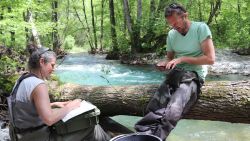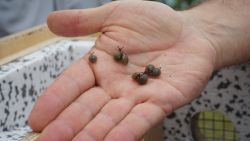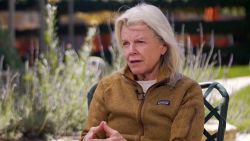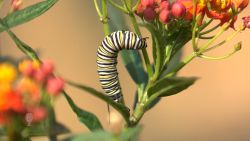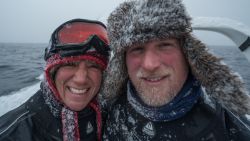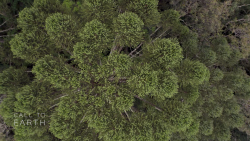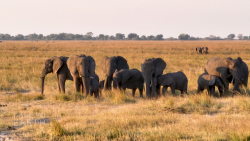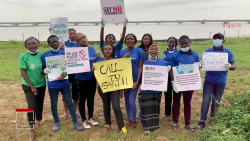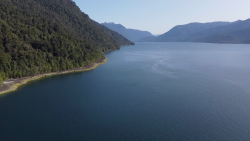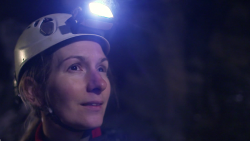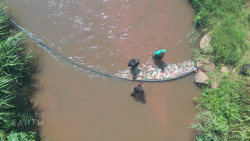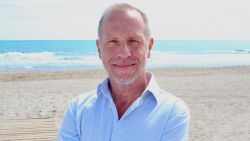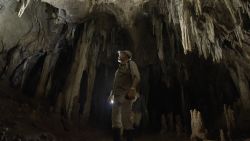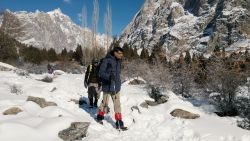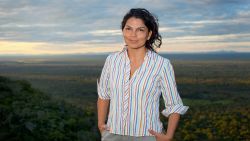Christiana Figueres is one of the world’s leading voices on climate change.
In 2010, the Costa Rican took on the role of the UN’s top climate negotiator, and was credited as an architect of the 2015 Paris Climate Agreement, when nations came together to agree a plan to tackle climate change.
Figueres has co-authored new book “The Future We Choose” alongside Tom Rivett-Carnac, a former climate and energy policy adviser, examining our prospects in the next 10 years. On this decade our future pivots, but there are reasons for optimism, she suggests. Among them, the young women who are emerging as leaders in climate activism.
Find out more about Call to Earth and the extraordinary people working for a more sustainable future
CNN’s Zain Asher interviewed Figueres in New York. The extracts below have been edited for length and clarity.
Zain Asher: You’ve said how critical the next 10 years are to humanity’s long-term future. Does it frighten you that more people aren’t alarmed by that?
Christiana Figueres: Yes. It sounds like a hyperbole, but it’s not. The fact is that we now have 10 years to reduce our greenhouse gas emissions to half of where they are now. The frightening thing is that if we get to 2030 and we haven’t done that, there is no way that we can put that destructive genie back in the bottle.
This is about the very unique circumstances that humans are enjoying now, which is a sweet spot of environmental conditions that have only been around for a few thousand years. The planet frankly doesn’t care. It’s about us. This is a very important opportunity that decides the future of humankind.
ZA: Where does gender equality figure in the fight?
CF: Most of the young leaders on climate change today, those who are taking kids out to the streets are women. That is so exciting. Young, brilliant women that I have the huge honor to have met so many of. I’m calling them women … they’re not even 18, but they’re acting like adults – and many adults are still acting like children.
Read: Meet the women racing to save the northern white rhino from extinction
I think most women are more collaborative than most men, and this is about radical collaboration. I think women tend to think more long-term. I also think that we come at the role of stewardship much easier than men. I think for all of those reasons, that’s why we see so many young women coming forward as young, fantastic leaders that are mobilizing youth.
ZA: What advice would you give to women eager to instigate change in their life?
CF: Figure out what your passion is. If you’re into climate change, fantastic, join the pride. But wherever you want to go into – women’s issues, health, industry, engineering – choose what your passion is and then pursue it with everything you have. Because honestly, our voices are being much more appreciated, and where they’re not, that’s exactly where we need to press more.
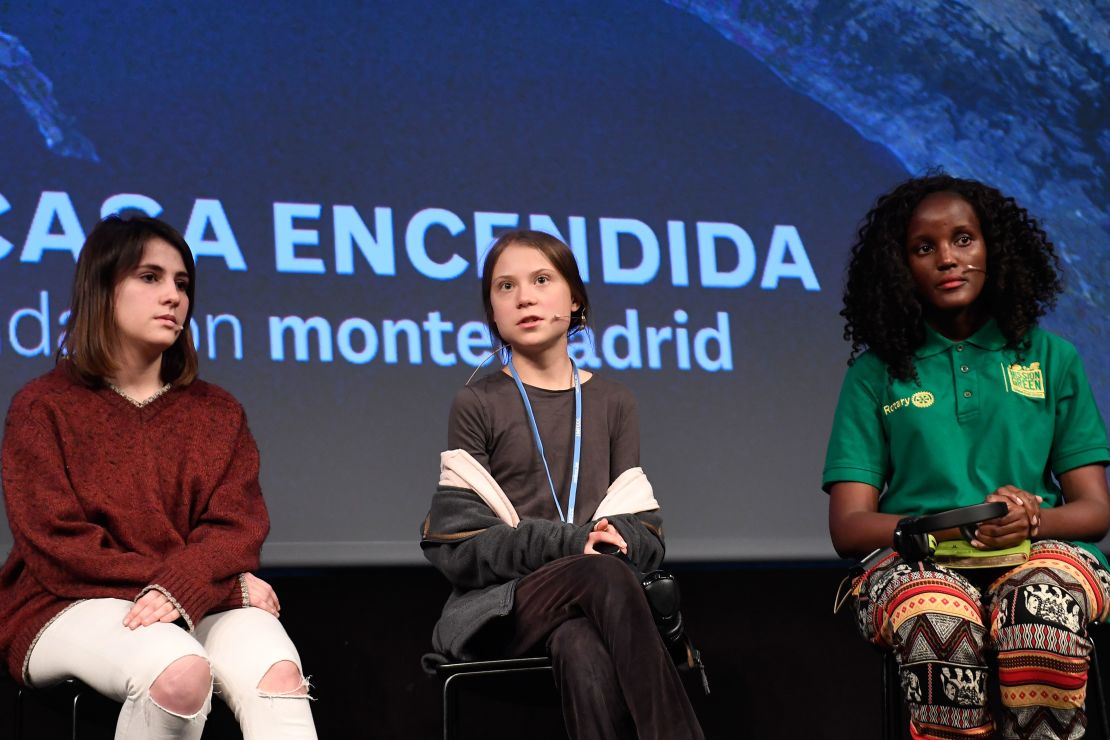
ZA: How does a society get from thinking in our own self-interest to thinking about what is better for the whole community?
CF: The first thing that we should be concerned about is our personal health. If we continue to live in congested, polluted, crowded, inefficient transport cities, then we’re not doing the best for our lungs, we’re not doing the best for time management and we’re doing the planet terrible damage. By getting rid of the internal combustion engine – which at this point belongs in a museum – now we have cities that are actually designed and run for people, as opposed to cars.
We have to begin to understand that addressing climate change is a huge opportunity. Most people think about it as a huge burden, “We’re going to go back to the caves.” It’s actually taking advantage of many of the new technologies to give us much better quality lives.
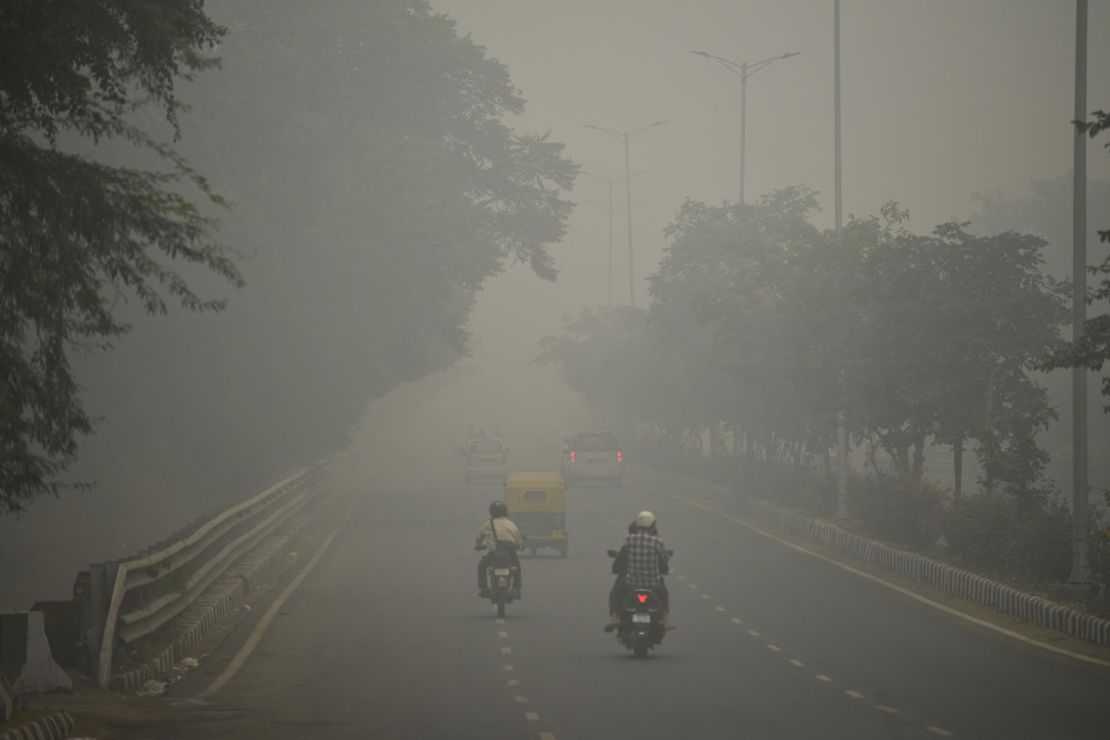
ZA: What steps can we take as individuals to make a difference?
CF: The first thing is food: Consuming red meat is bad thing for the planet. So you can better your health, and do something for the planet by starting to give up some meat. You can give it up on Mondays or on Tuesdays or at breakfast or at lunch. You don’t have to turn into this wonderful meatless angel overnight. But you can start on the process.
To be energy efficient in your home, in your office, actually saves you money because you’re not paying for unneeded energy and you are contributing to the planet.
Watch: Five simple ways to save the planet
People who are in a very privileged position of already having savings, look at where those savings are. You should ask your asset manager. Because if that money is invested in high carbon, in the coal industry, or even in the oil and gas industry, you’re going to lose your money. You don’t want to have your portfolio lose value over the next five, 10, 15 years. That’s good for you and it’s good for the planet.
ZA: When your time is done, what do you hope will be your legacy?
CF: I don’t care if I’ve made a difference. What I care about is, have we collectively made a difference? This is our last chance. By 2030 I will be 73; we will know if we stand any chance to stabilize what has already started. I don’t have to wait until I’m 107. That is why I am dedicating everything that I have to these 10 years.












